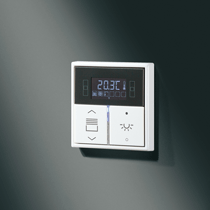Scratchproof coating works even after thermoforming
This supplier of polycarbonate has developed a new hardcoated film that, despite its scratchproof coating, can be shaped three-dimensionally. The film produces 3D component surfaces with a deep-gloss finish and supposedly outstanding abrasion resistance.
June 23, 2010
This supplier of polycarbonate has developed a new hardcoated film that, despite its scratchproof coating, can be shaped three-dimensionally. The film produces 3D component surfaces with a deep-gloss finish and supposedly outstanding abrasion resistance.
|
Called Makrofol TP 278 and marketed by Bayer MaterialScience (Leverkusen, Germany), the new polycarbonate (PC) film could be of interest for processors serving a variety of markets including car interiors, household appliances and IT equipment, predicts Dirk Pophusen, head of business development in the Functional Films section at the supplier. He said this first grade is the start of the new Makrofol HF product family of scratchproof-coated, formable films.
Adding the coating to a film before it is formed, rather than after, reduces the considerable work and expense associated with coating such parts; coating lines are costly and require regular maintenance. For a processor it is easier to start with plastic films that have already been given a scratchproof coating and to back-print, form, trim and, if necessary, back-injection mold them. Bayer developed what it calls its DualCure scratchproof coatings as a means to coat films before they are formed with a coating that is not harmed by thermoforming or cold formed via high-pressure forming (HPF). These are pre-cured coatings, which can be formed together with the film and are then cured using conventional UV lamps, explains Pophusen. 

The cured film’s abrasion resistance achieves a "1H" rating in the pencil hardness test (ISO 15184, 500g). The coated films also are said to be resistant to grease, fat and cleaning agents.
Potential applications include housings for consumer electronics, cell phone housings and keypads, control elements of washing machines and dishwashers, and decorative 3D facings for car interiors such as the trim around the center console. One of the firstcommercialusers is Albrecht Jung GmbH & Co., whichspecified Makrofol TP 278 for the display of its new KNX room control system (see photo).
This first film is for high-gloss applications but the supplier also intends to develop formable scratch-resistant films for car interiors that produce a matte finish. Another target is to produce UV-stable hardcoat films for large add-on bodywork parts. 

—[email protected]
About the Author(s)
You May Also Like



